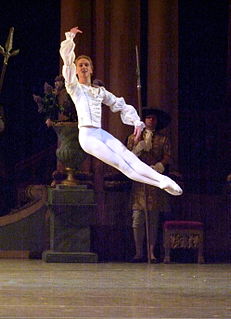A Quote by Plautus
Every one can remember that which has interested himself.
Quote Topics
Related Quotes
Such is the state of every age, every sex, and every condition: all have their cares, either from nature or from folly; and whoever, therefore, finds himself inclined to envy another, should remember that he knows not the real condition which he desires to obtain, but is certain that by indulging a vicious passion, he must lessen that happiness which he thinks already too sparingly bestowed.
I've been interested in art and fashion for as long as I can remember because they are so visual. I am fascinated by the idea of visual creation from the ground up, which is a challenge in ballet when the audience has seen every show of yours, every other principal that you've shared a role with, and every different production.
My definition of learning is to remember what you are interested in. If you don't remember something, you haven't learned it, and you are never going to remember something unless you are interested in it. These words dance together. 'Interest' is another holy word and drives 'memory'. Combine them and you have learning.
A relation is formed betwixt every man and the fruits of his own labour, the very thing we call property, which he himself is sensible of, and of which every other is equally sensible. Yours and mine are terms in all languages, familiar among savages, and understood even by children. This is a fact, which every human creature can testify.
Philosophers have long conceded, however, that every man has two educators: 'that which is given to him, and the other that which he gives himself. Of the two kinds the latter is by far the more desirable. Indeed all that is most worthy in man he must work out and conquer for himself. It is that which constitutes our real and best nourishment. What we are merely taught seldom nourishes the mind like that which we teach ourselves.
Men are less hesitant about harming someone who makes himself loved than one who makes himself feared because love is held together by a chain of obligation which, since men are wretched creatures, is broken on every occasion in which their own interests are concerned; but fear is sustained by dread of punishment which will never abandon you.
He could remember all about it now; the pitiful figure he must have cut; the absurd way in which he had gone and done the very thing he had so often agreed with himself in thinking would be the most foolish thing in the world; and had met with exactly the consequences which, in these wise moods, he had always foretold were certain to follow, if he ever did make such a fool of himself.
I was interested in flying beginning at age 7, when a close family friend took me in his little airplane. And I remember looking at the wheel of the airplane as we rolled down the runway, because I wanted to remember the exact moment that I first went flying... the other thing growing up is that I was always interested in science.
When every event was a miracle, when there was no order or system or law, there was no occasion for studying any subject, or being interested in anything excepting a religion which took care of the soul. As man doubted the primitive conceptions about religion, and no longer accepted the literal, miraculous teachings of ancient books, he set himself to understand nature.
I heard of somebody once who said he was interested in doing the greatest amount of good for the greatest number, and that the greatest number was number one. That was himself. That may sound like a little bit of selfishness, but if that is selfishness, at least it is a very intelligent selfishness. Everyone has a right to be interested in himself, and I am confident that God wants us to be interested in ourselves first; that is, the first soul that anyone should bring to God should be his own soul.
Nor has science sufficient humanity, so long as the naturalist overlooks the wonderful congruity which subsists between man and the world; of which he is lord, not because he is the most subtile inhabitant, but because he is its head and heart, and finds something of himself in every great and small thing, in every mountain stratum, in every new law of color, fact of astronomy, or atmospheric influence which observation or analysis lay open.
I was interested in theatre, and the only experience that I had in high school was as an actor. But when I got in Conservatoire, my teachers would give me a lot of flack because I wasn't rehearsing my lines; I'd be doing stage management. I was interested in sound. I was interested in architecture. I was interested in every aspect of theatre.





































